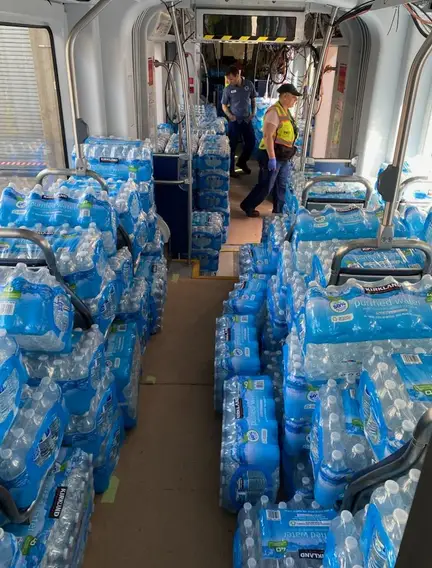Hidden Insight Into PBOT Street Car Stress Test

At first glance, you might wonder why a Portland street car had been fully loaded with bottles of water. It doesn’t make much sense does it?
However, this is the way that PBOT load tests their transport network. On a busy day at rush hour, a street car can be full of people, so it’s important to know whether there are any problems in the network before opening to the public. Without this strange, but necessary test, the real life results could be disastrous.
It’s quite clear to see that CostCo must be happy with many cases of their Kirkland branded water filling all parts of the carriage.
This has led to one unanswered question, what happens to all of the water after the load test? The most obvious answer would be that it would be use for future tests. However, it would require a lot of storage space for such a huge amount of water!

About Load Testing:
Load testing is important for public transport systems because it helps ensure that the system can handle the expected amount of passenger traffic efficiently and safely. Public transport systems are designed to transport a large number of people at once, and if the system becomes overloaded, it can lead to safety issues and delays.
Load testing involves simulating a high volume of passengers using the system at once, which can help identify potential bottlenecks or other issues that could impact the system’s performance. By identifying these issues before the system goes into operation, operators can make adjustments and improvements to ensure that the system can handle the expected load.
Additionally, load testing can help identify issues with the system’s infrastructure, such as tracks, signals, and other components, that may not be able to handle the increased stress of a high volume of passengers. Identifying these issues before the system goes into operation can help prevent accidents and other safety issues.
Overall, load testing is an important step in ensuring that public transport systems are safe, efficient, and able to handle the demands of the communities they serve.